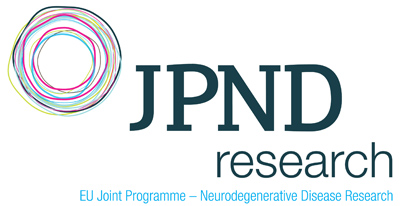Fraunhofer Institute for Cell Therapy and Immunology coordinating EU project which aims to shed light on molecular mechanisms of neurodegenerative diseases such as Alzheimer's and Parkinson's
7 June 2015 marked the start of a joint European project in Halle intended to shed light on common molecular features in the early development of neurodegenerative diseases. Five partner institutions from Halle, Leipzig, Erlangen, Paris (France) and Oslo (Norway) have set themselves the goal of working on therapeutic strategies based on new findings. The project, which is set to run over a three-year period, has been awarded a total of 1.7 million euros in funding from the European Union.


Besides the devastating effects they have on patients, neurodegenerative diseases such as Alzheimer's, Parkinson's and Huntington's diseases have one key thing in common: their pathology is based on the aggregation and accumulation of misfolded proteins in the brain. This results in a loss of tissue and function and, consequently, severe neurological disorders which are fatal in the advanced stages of the diseases. Until now, the mechanisms associated with the early development of these diseases have mainly been researched independently of each other. Latest investigations, however, have suggested similarities in the molecular development processes of the diseases. This is centered around the hypothesis that misfolded peptides, which frequently arise in the case of such diseases, also induce a deposit of other proteins. This means that a peptide triggers degenerative processes which become more intense through the coaggregation of peptides. The main target proteins to be investigated include Abeta, alpha-synuclein and huntingtin.
Fraunhofer IZI's Molecular Drug Biochemistry and Therapy Development (MWT) project group is coordinating the EU project and aims to research these common features and develop new therapeutic strategies.
Led by Professor Hans-Ulrich Demuth and Dr Stephan Schilling, the group will contribute their many years of experience researching misfolded proteins to the project. Consequently, the Halle scientists have set themselves the chief task of synthesizing respective proteins and antibodies for their subsequent investigation. At Leipzig University, detailed investigations into the development of Alzheimer's will then be carried out building on this research. At the Friedrich-Alexander University Erlangen-Nürnberg, the focus is placed on research into Huntington's disease, while the French National Institute of Health and Medical Research in Paris will look at the development of Parkinson's disease with an eye to the aspects mentioned above. At the University of Oslo, a computer-based database will be created, which will draw on the histological data generated by the units in order to gain a corresponding, local correlation between protein deposits in the brain for each different disease model.
Information on funding
This project is being funded by the "EU Joint Programme – Neurodegenerative Disease Research (JPND)", the largest global research initiative aimed at tackling the challenge of neurodegenerative diseases. JPND aims to increase the coordinated investments of its partner countries and thus to support research which looks to identify causes of disease, therapy development and suitable care measures for patients. Further information can be found at:
Other contacts
Department of Drug Design and Target Validation Halle
Prof. Dr. Hans-Ulrich Demuth
Phone +49 345 131428-05
hans-ulrich.demuth@izi.fraunhofer.de